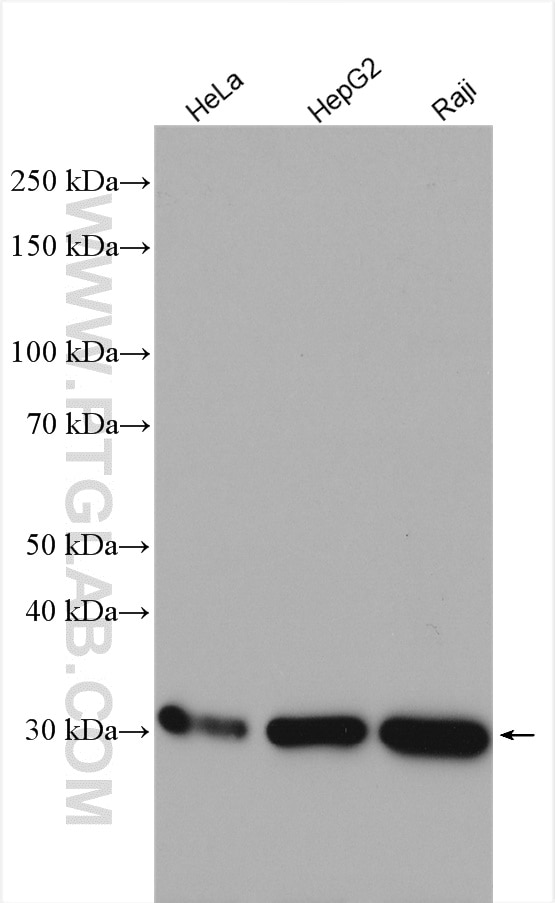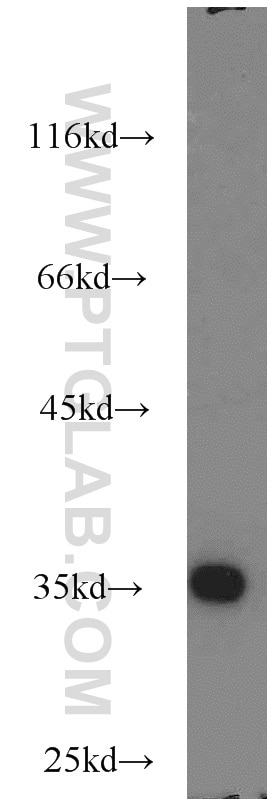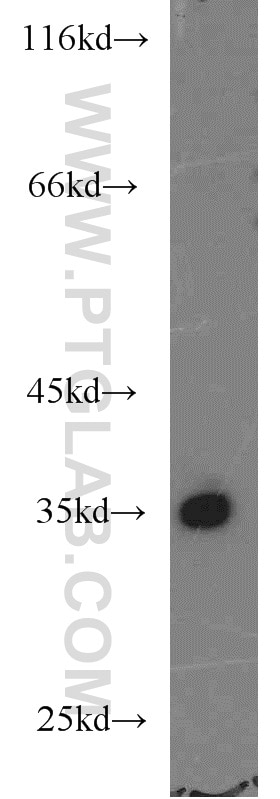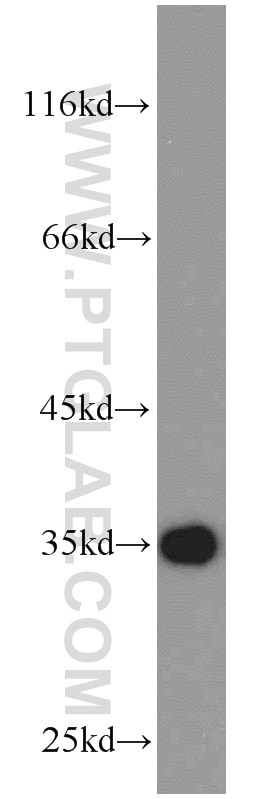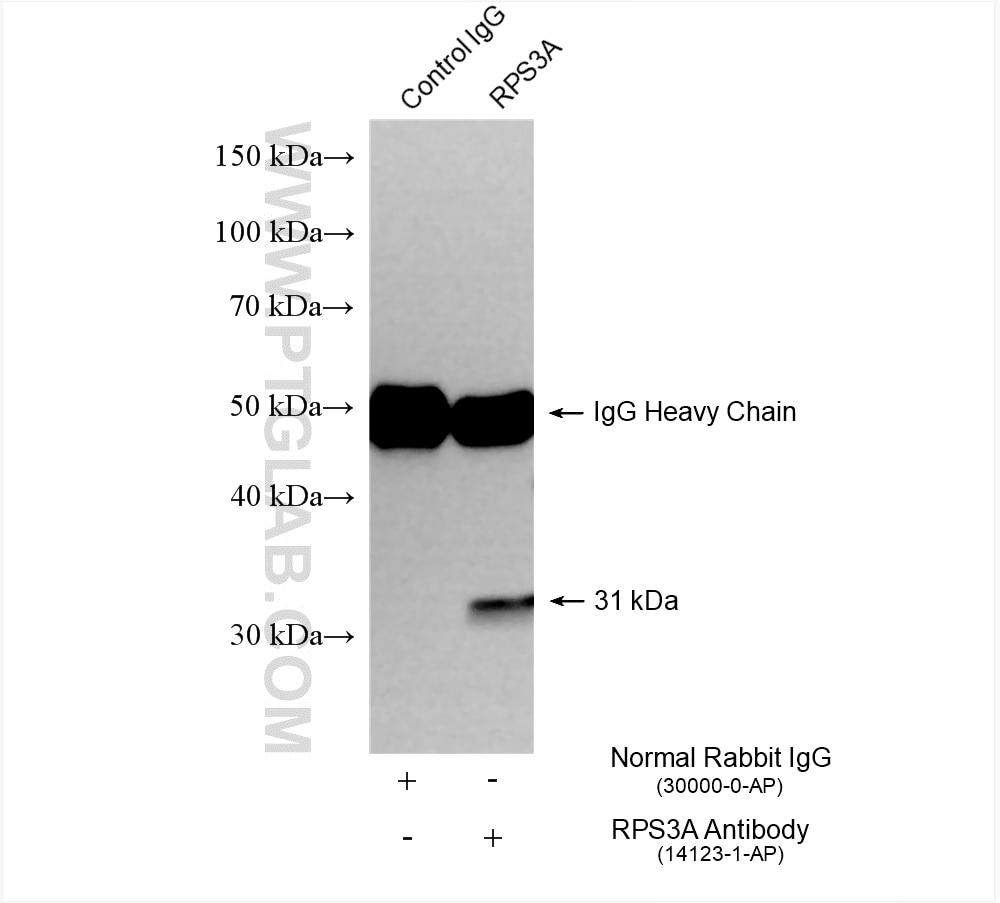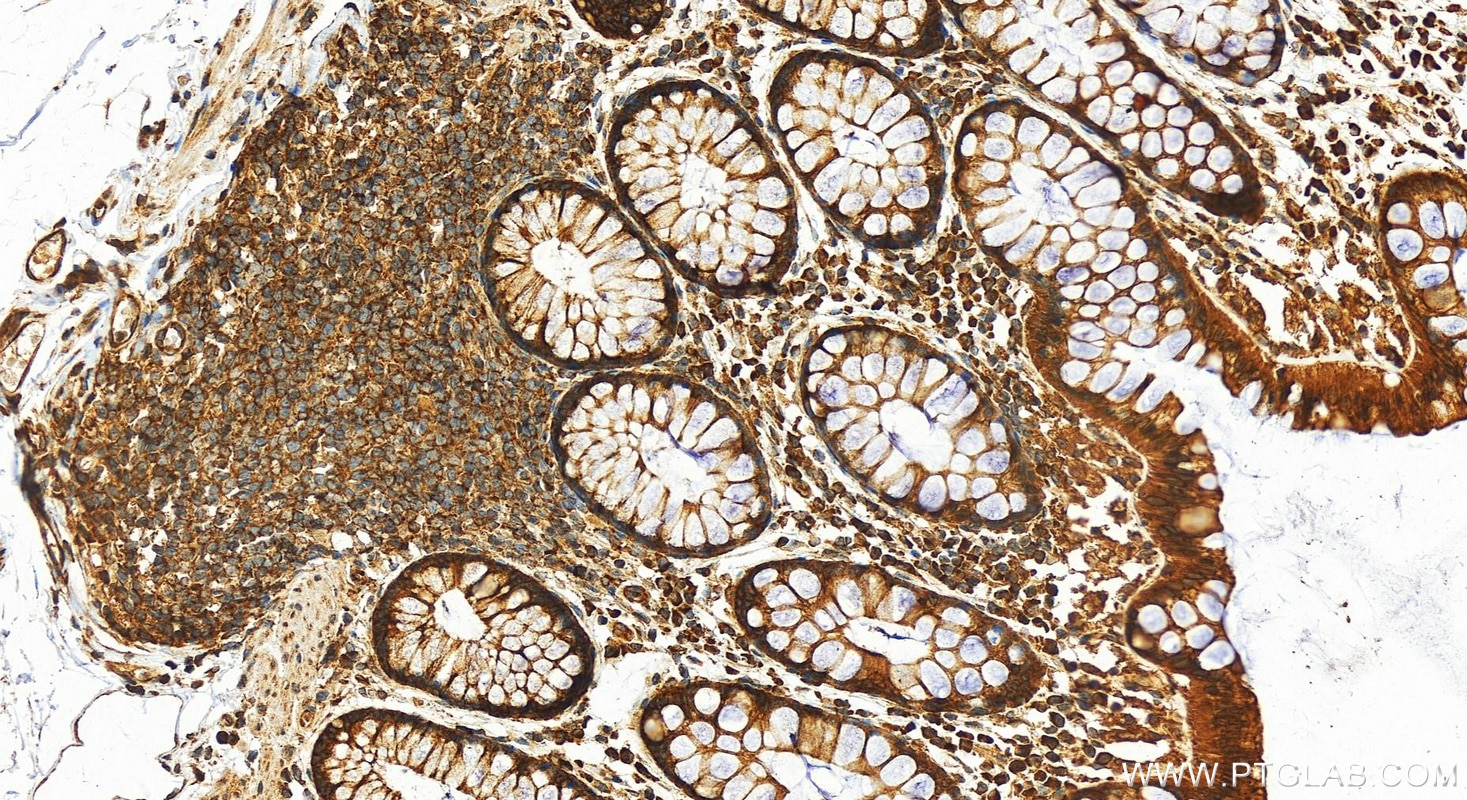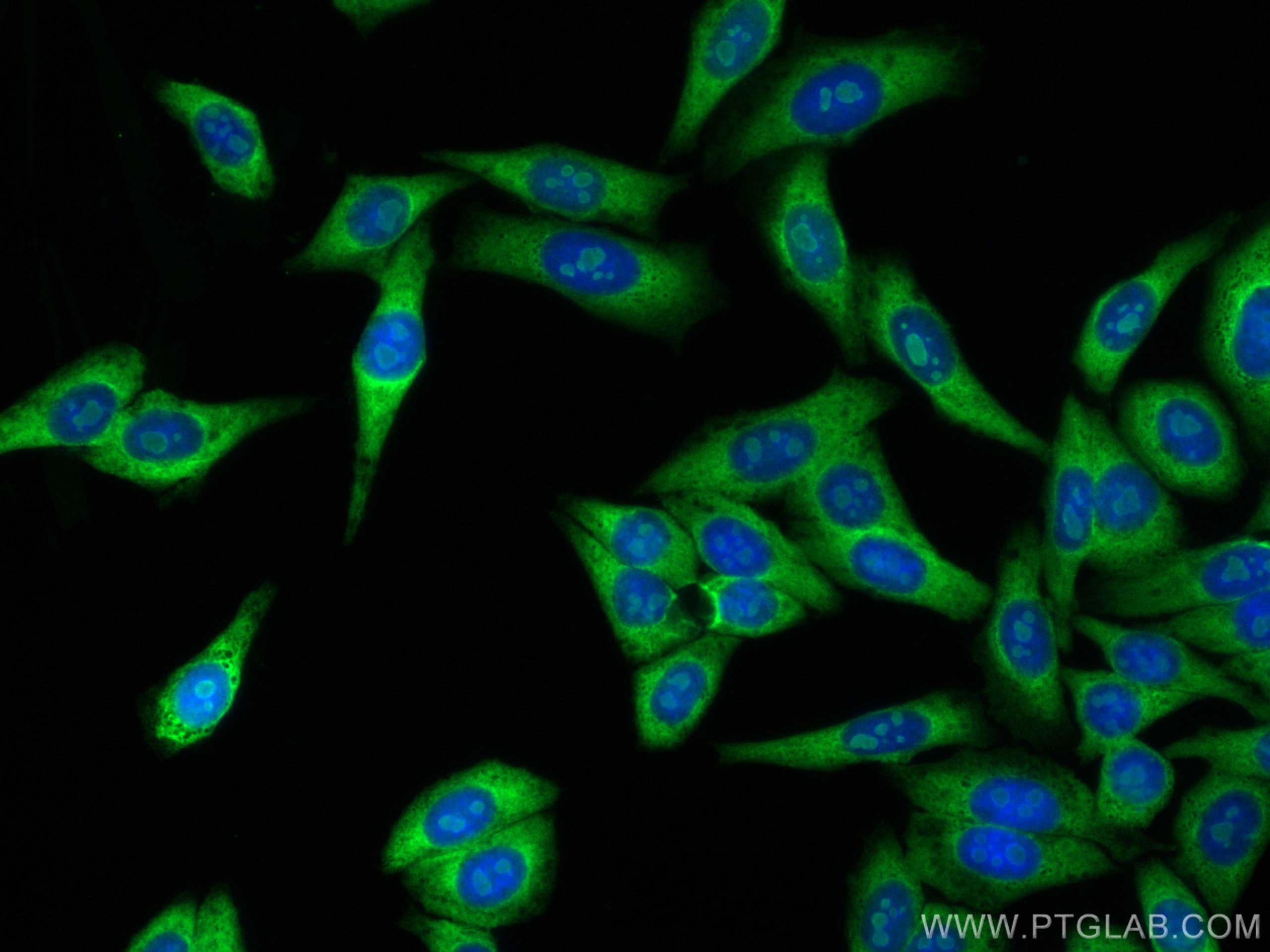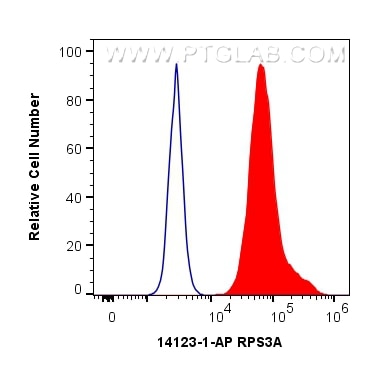Tested Applications
| Positive WB detected in | HeLa cells, A431 cells, Jurkat cells, A549 cells, HepG2 cells, Raji cells |
| Positive IP detected in | HeLa cells |
| Positive IHC detected in | human colon tissue Note: suggested antigen retrieval with TE buffer pH 9.0; (*) Alternatively, antigen retrieval may be performed with citrate buffer pH 6.0 |
| Positive FC (Intra) detected in | HepG2 cells |
Recommended dilution
| Application | Dilution |
|---|---|
| Western Blot (WB) | WB : 1:1000-1:8000 |
| Immunoprecipitation (IP) | IP : 0.5-4.0 ug for 1.0-3.0 mg of total protein lysate |
| Immunohistochemistry (IHC) | IHC : 1:400-1:1600 |
| Flow Cytometry (FC) (INTRA) | FC (INTRA) : 0.50 ug per 10^6 cells in a 100 µl suspension |
| It is recommended that this reagent should be titrated in each testing system to obtain optimal results. | |
| Sample-dependent, Check data in validation data gallery. | |
Published Applications
| KD/KO | See 1 publications below |
| WB | See 6 publications below |
| IHC | See 2 publications below |
| IF | See 4 publications below |
Product Information
14123-1-AP targets RPS3A in WB, IHC, IF, FC (Intra), IP, ELISA applications and shows reactivity with human, mouse, rat samples.
| Tested Reactivity | human, mouse, rat |
| Cited Reactivity | human, mouse, xenopus |
| Host / Isotype | Rabbit / IgG |
| Class | Polyclonal |
| Type | Antibody |
| Immunogen |
CatNo: Ag5273 Product name: Recombinant human RPS3A protein Source: e coli.-derived, PGEX-4T Tag: GST Domain: 1-264 aa of BC066926 Sequence: MAVSKNKRLTKGGKKGAKKKVVDPFSKKDWYDVKAPAMFNIRNIGKTLVTRTQGTKIASDGLKGRVFEVSLADLQNDEVAFRKFKLITEDVQGKNCLTNFHGMDLTRDKMCSMVKKWQTMIEAHVDVKTTDGYLLRLFCVGFTKKRNNQIRKTSYAQHQQVRQIRKKMMEIMTREVQTNDLKEVVNKLIPDSIGKDIEKACQSIYPLHDVFVRKVKMLKKPKFELGKLMELHGEGSSSGKATGDETGAKVERADGYEPPVQESV Predict reactive species |
| Full Name | ribosomal protein S3A |
| Calculated Molecular Weight | 30 kDa |
| Observed Molecular Weight | 35 kDa |
| GenBank Accession Number | BC066926 |
| Gene Symbol | RPS3A |
| Gene ID (NCBI) | 6189 |
| RRID | AB_2253921 |
| Conjugate | Unconjugated |
| Form | Liquid |
| Purification Method | Antigen affinity purification |
| UNIPROT ID | P61247 |
| Storage Buffer | PBS with 0.02% sodium azide and 50% glycerol, pH 7.3. |
| Storage Conditions | Store at -20°C. Stable for one year after shipment. Aliquoting is unnecessary for -20oC storage. 20ul sizes contain 0.1% BSA. |
Background Information
RPS3a, a component of the ribosomal small subunit (40S), is a member of the A20 family of the deubiquitinating cysteine proteases. RPS3a is an inducing factor for oncogenic cellular transformation of Rat-1 cells by v-fos, and is highly expressed in most tumors including hepatocellular carcinoma and other cancers. On the other hand, RPS3a has also been described as a regulator of apoptosis and transcription factors.
Protocols
| Product Specific Protocols | |
|---|---|
| FC protocol for RPS3A antibody 14123-1-AP | Download protocol |
| IF protocol for RPS3A antibody 14123-1-AP | Download protocol |
| IHC protocol for RPS3A antibody 14123-1-AP | Download protocol |
| IP protocol for RPS3A antibody 14123-1-AP | Download protocol |
| WB protocol for RPS3A antibody 14123-1-AP | Download protocol |
| Standard Protocols | |
|---|---|
| Click here to view our Standard Protocols |
Publications
| Species | Application | Title |
|---|---|---|
Neuron Axon-Axon Interactions Regulate Topographic Optic Tract Sorting via CYFIP2-Dependent WAVE Complex Function. | ||
Mol Cell Proteomics Proteomic Profiling Identified Multiple Short-lived Members of the Central Proteome as the Direct Targets of the Addicted oncogenes in Cancer Cells. | ||
Mol Cell Proteomics Proteomic landscape of exosomes reveals the functional contributions of CD151 in triple-negative breast cancer. | ||
Cell Discov RPS3A positively regulates the mitochondrial function of human periaortic adipose tissue and is associated with coronary artery diseases.
| ||

